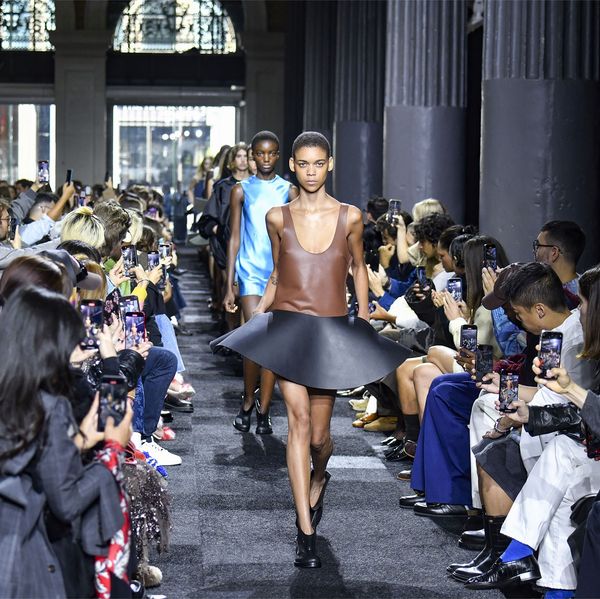Culture
5 Women in Politics on the Importance of Female Leadership in the U.S. Government
Stacey Abrams, Veronica Escobar, and others chat with Coveteur as the most consequential election in modern history draws near.

23 October, 2018
10 November, 2021
In 1991, Anita Hill testified about her allegations of sexual harassment against then-Supreme Court nominee Clarence Thomas. As she stood before the Senate Judiciary Committee, Hill was attacked, vilified, and dismissed by a group of 14 senators—all of them white males—and the threat to women’s fundamental rights posed by a male-dominated government was realized in a very public arena. This inspired a surge of women to run for office, a number of whom were elected to the Senate in 1992, dubbed the Year of the Woman.
Fast-forward 27 years, and here we are again, in the midst of a disturbing déjà vu. The Senate Judiciary Committee convened, once more, over sexual misconduct allegations made against Supreme Court nominee Brett Kavanaugh—a man appointed by a president who, himself, has been accused of sexual harassment and assault by 22 women. Kavanaugh has now been confirmed and sworn into the highest court in the land. As such, the progress made by generations before us is at stake—from the push towards holding men accountable for their actions, to preserving women’s reproductive rights, and everything in between.
But outrage has again been channeled into political action this election cycle, as more women seek office. And they’re not just signing up to run in record numbers—they’re winning. Currently only 23 of the 100 senators are female, while less than 20 percent of the House is made up of women. Prominent female candidates are gaining momentum though, and a historic 256 women have qualified for the November ballot in House or Senate races. They bring with them diverse backgrounds, perspectives, and professional experiences that can help restore balance and push for greater representation in our halls of power.
This year presents a particularly extraordinary opportunity to shatter glass ceilings of all types, from Georgia’s Stacey Abrams, who could be the first African-American woman governor in the country, to Arizona’s Kyrsten Sinema, who could be the first openly bisexual woman in the Senate. We spoke to a range of leaders, from congressional nominees to campaign organizers, about the increased involvement of politically active women in the wake of President Donald Trump’s election. How do they believe the future of politics will change as a result, and what advice do they have for women who want to get involved? Are we on the precipice of a new Year of the Woman? Here’s what they had to say:
Fast-forward 27 years, and here we are again, in the midst of a disturbing déjà vu. The Senate Judiciary Committee convened, once more, over sexual misconduct allegations made against Supreme Court nominee Brett Kavanaugh—a man appointed by a president who, himself, has been accused of sexual harassment and assault by 22 women. Kavanaugh has now been confirmed and sworn into the highest court in the land. As such, the progress made by generations before us is at stake—from the push towards holding men accountable for their actions, to preserving women’s reproductive rights, and everything in between.
But outrage has again been channeled into political action this election cycle, as more women seek office. And they’re not just signing up to run in record numbers—they’re winning. Currently only 23 of the 100 senators are female, while less than 20 percent of the House is made up of women. Prominent female candidates are gaining momentum though, and a historic 256 women have qualified for the November ballot in House or Senate races. They bring with them diverse backgrounds, perspectives, and professional experiences that can help restore balance and push for greater representation in our halls of power.
This year presents a particularly extraordinary opportunity to shatter glass ceilings of all types, from Georgia’s Stacey Abrams, who could be the first African-American woman governor in the country, to Arizona’s Kyrsten Sinema, who could be the first openly bisexual woman in the Senate. We spoke to a range of leaders, from congressional nominees to campaign organizers, about the increased involvement of politically active women in the wake of President Donald Trump’s election. How do they believe the future of politics will change as a result, and what advice do they have for women who want to get involved? Are we on the precipice of a new Year of the Woman? Here’s what they had to say:
Stacey Abrams, Democratic Candidate for Governor of Georgia
Stacey Abrams stands to make history as the first black female governor in the nation. She was previously elected as House Minority Leader and became the first woman to lead a caucus in either chamber of the Georgia legislature. Abrams’ mission has always been to talk about the real issues that affect Georgians, including education and healthcare, and she hopes to give those who do not see themselves represented in politics the opportunity to thrive and live up to their highest potential.
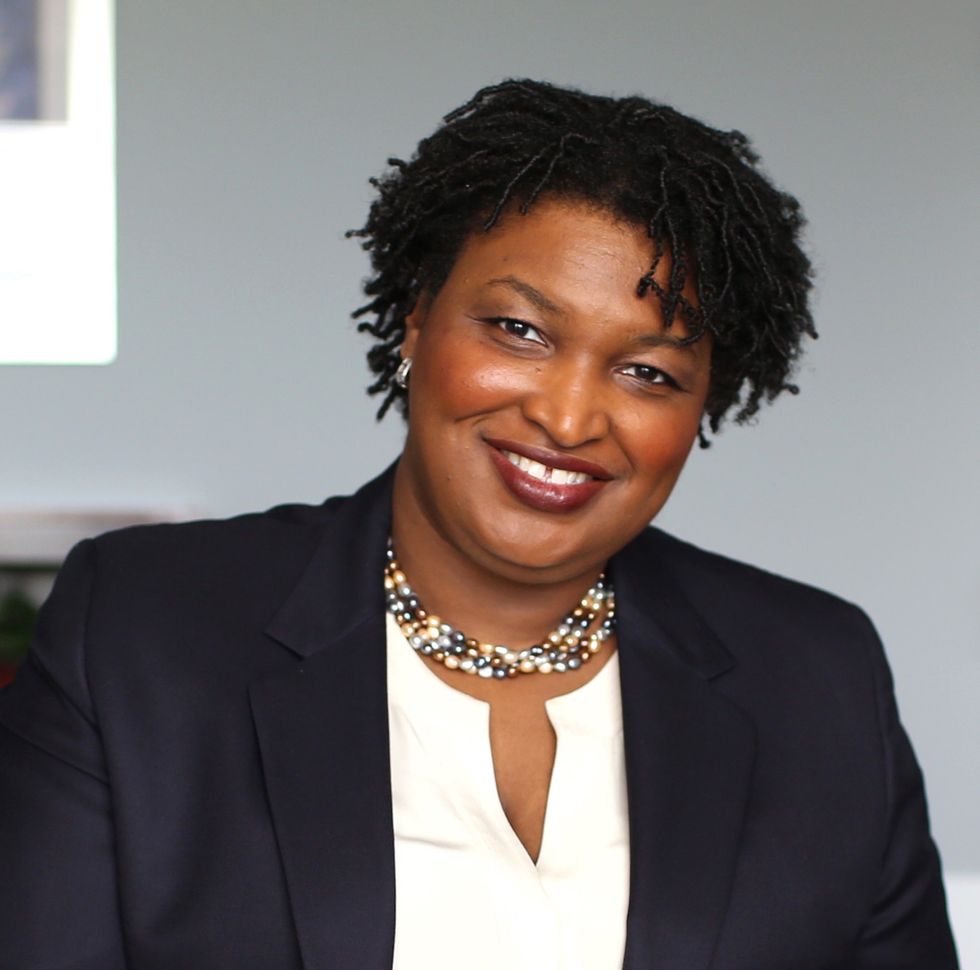 Photo: Courtesy of Stacey Abrams
Photo: Courtesy of Stacey AbramsAn unprecedented number of women are running for office in 2018. Why do you think this is?
“We have seen an awakening in recent years where people have realized that we need to get involved. For some, that is volunteering and even working on campaigns. For others, that means running themselves.
“With more women running, there are more examples of female leadership for the next generation to look up to and learn from. And most importantly, our societal understanding of what a ‘leader’ looks like shifts and changes with the growing number of women ascending to public office. I am proud to be running in a year that many young women and girls will look back on and see as a watershed year for representation in our state and in our nation. I know that we will inspire a new generation of leaders and set a clear example on how to lead.”
What are the major issues preventing women from equal participation in society in the U.S.? How can the election of more female politicians push for change and systemic reform in these areas?
“When I was elected as House Minority Leader, I became the first woman to lead a caucus in either chamber of the Georgia legislature. Despite my position of leadership, some wanted to make it a rule that I, as leader, could not go to the Speaker of the House’s office without being escorted by a male colleague. They did not believe I could handle a meeting with the Speaker alone. Because of my ability to negotiate across the aisle, I secured a transportation funding package, enacted criminal justice reform with current Governor Nathan Deal, stopped one of the largest tax hikes on working Georgia families, saved Georgia’s HOPE scholarship, prevented a Republican supermajority in the House, and ultimately proved to my colleagues that I was more than equipped to serve in this senior legislative role.
“Women push for change and systemic reform when they surpass the expectations set by outdated understandings. With new models, the perceived qualifications of what makes an excellent legislator change, too.”
You stand to make history as the first black female governor in the nation. How does being a woman of color affect your approach to this race? Does this impact your platform and the kinds of issues you intend to tackle if elected?
“My identity certainly impacts the way I view the world, and some of my experiences as a woman of color have influenced the policies I plan to pursue as governor. As a small business owner, I learned firsthand how access to capital can spur a small business and how the lack of funding can kill an entrepreneur’s dream—particularly for women and people of color. As governor, I want to pursue bold, comprehensive economic plans to ensure that no community is left out or left behind because of who they are or where they come from. And fundamentally, I believe that no matter their background, Georgians want a good governor who can lead and tackle tough issues that are impacting them on a daily basis. I am running for every Georgian who would be lifted up under leadership dedicated to debt-free college, continuing progress on criminal justice reform, and high-wage jobs.”
“We have seen an awakening in recent years where people have realized that we need to get involved. For some, that is volunteering and even working on campaigns. For others, that means running themselves.
“With more women running, there are more examples of female leadership for the next generation to look up to and learn from. And most importantly, our societal understanding of what a ‘leader’ looks like shifts and changes with the growing number of women ascending to public office. I am proud to be running in a year that many young women and girls will look back on and see as a watershed year for representation in our state and in our nation. I know that we will inspire a new generation of leaders and set a clear example on how to lead.”
What are the major issues preventing women from equal participation in society in the U.S.? How can the election of more female politicians push for change and systemic reform in these areas?
“When I was elected as House Minority Leader, I became the first woman to lead a caucus in either chamber of the Georgia legislature. Despite my position of leadership, some wanted to make it a rule that I, as leader, could not go to the Speaker of the House’s office without being escorted by a male colleague. They did not believe I could handle a meeting with the Speaker alone. Because of my ability to negotiate across the aisle, I secured a transportation funding package, enacted criminal justice reform with current Governor Nathan Deal, stopped one of the largest tax hikes on working Georgia families, saved Georgia’s HOPE scholarship, prevented a Republican supermajority in the House, and ultimately proved to my colleagues that I was more than equipped to serve in this senior legislative role.
“Women push for change and systemic reform when they surpass the expectations set by outdated understandings. With new models, the perceived qualifications of what makes an excellent legislator change, too.”
You stand to make history as the first black female governor in the nation. How does being a woman of color affect your approach to this race? Does this impact your platform and the kinds of issues you intend to tackle if elected?
“My identity certainly impacts the way I view the world, and some of my experiences as a woman of color have influenced the policies I plan to pursue as governor. As a small business owner, I learned firsthand how access to capital can spur a small business and how the lack of funding can kill an entrepreneur’s dream—particularly for women and people of color. As governor, I want to pursue bold, comprehensive economic plans to ensure that no community is left out or left behind because of who they are or where they come from. And fundamentally, I believe that no matter their background, Georgians want a good governor who can lead and tackle tough issues that are impacting them on a daily basis. I am running for every Georgian who would be lifted up under leadership dedicated to debt-free college, continuing progress on criminal justice reform, and high-wage jobs.”
Stephanie Schriock, President of EMILY’s List
Stephanie Schriock grew up in the copper mining town of Butte, Montana, a historic hotbed for strong democratic union politics. She was actively involved in school politics throughout high school and college, and eventually pursued a pre-med major that turned into public administration classes. Schriock’s first job was on a Minnesota congressional race for Mary Rieger, and she is now responsible for leading the organization of the most successful election cycles for EMILY’s List, a political action committee dedicated to recruiting pro-choice Democratic women to run for elected office.
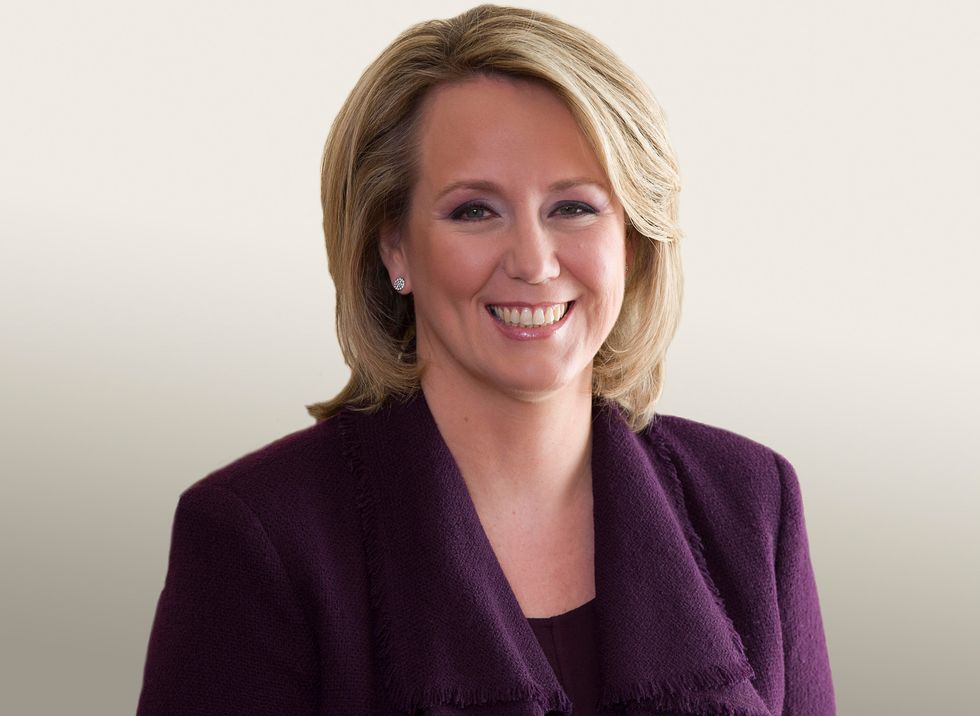 Photo: Courtesy of Stephanie Schriock
Photo: Courtesy of Stephanie SchriockWhy are organizations like EMILY’s List essential in driving political change in the United States? Understanding that diversity is at the core of your mission, how does EMILY’s List empower more women to get involved?
“Women are only 20 percent of Congress, and just a quarter of our state legislatures. When we don’t have a government that looks like America, we don’t have a government pushing for the best balanced policies. We leave people behind. If we want to fix this problem, we have to face it head-on by recruiting, training, and helping elect women to office. That’s why, at EMILY’s List, our staff is laser-focused on helping women learn the tools of running a successful campaign— whether that’s teaching a candidate to fund-raise, prepping them for debates, introducing them to other candidates going through the same challenges they are—and making sure that they have the resources necessary to win. We empower our candidates by providing our over three decades of experience in tackling every problem a campaign could face.”
What are the major challenges faced by women running for office?
“If it were easy to elect women to office, we would be at 50 percent representation in our governing bodies. Women in this country still face challenges on the campaign trail. No man gets asked who will be watching his children if he goes to Congress. No man gets asked if he’s just running on ‘men’s issues,’ nor do they face questions about their qualifications in the ways our women candidates do. Women are still running up against the assumption that a ‘leader’ is a man in a suit; they have to work hard to change those stereotypes and help voters understand that elected officials come in all shapes, sizes, and genders.”
An unprecedented number of women are running for office in 2018. Why do you think this is?
“It’s a combination of factors. Of course, the election of Donald Trump—a misogynist and racist who bragged about being able to assault women because he was famous—inspired women to take action. But it was the Republican Party’s continued pursuit of dangerous policies, from the Obamacare repeal bill to the tax scam, that have motivated women to keep protesting, marching, and running for office. The over 42,000 women who have contacted EMILY’s List since Election Day 2016 about running for office want to fix something, whether it’s their local public schools, healthcare in their communities, or corruption in Washington. They see a broken political system that props up the wealthy white men that make up the vast majority of the Republican Party. They’re fed up with politicians in states and on Capitol Hill that do nothing to help American families, and they want to be the solution. It’s inspirational.”
“Women are only 20 percent of Congress, and just a quarter of our state legislatures. When we don’t have a government that looks like America, we don’t have a government pushing for the best balanced policies. We leave people behind. If we want to fix this problem, we have to face it head-on by recruiting, training, and helping elect women to office. That’s why, at EMILY’s List, our staff is laser-focused on helping women learn the tools of running a successful campaign— whether that’s teaching a candidate to fund-raise, prepping them for debates, introducing them to other candidates going through the same challenges they are—and making sure that they have the resources necessary to win. We empower our candidates by providing our over three decades of experience in tackling every problem a campaign could face.”
What are the major challenges faced by women running for office?
“If it were easy to elect women to office, we would be at 50 percent representation in our governing bodies. Women in this country still face challenges on the campaign trail. No man gets asked who will be watching his children if he goes to Congress. No man gets asked if he’s just running on ‘men’s issues,’ nor do they face questions about their qualifications in the ways our women candidates do. Women are still running up against the assumption that a ‘leader’ is a man in a suit; they have to work hard to change those stereotypes and help voters understand that elected officials come in all shapes, sizes, and genders.”
An unprecedented number of women are running for office in 2018. Why do you think this is?
“It’s a combination of factors. Of course, the election of Donald Trump—a misogynist and racist who bragged about being able to assault women because he was famous—inspired women to take action. But it was the Republican Party’s continued pursuit of dangerous policies, from the Obamacare repeal bill to the tax scam, that have motivated women to keep protesting, marching, and running for office. The over 42,000 women who have contacted EMILY’s List since Election Day 2016 about running for office want to fix something, whether it’s their local public schools, healthcare in their communities, or corruption in Washington. They see a broken political system that props up the wealthy white men that make up the vast majority of the Republican Party. They’re fed up with politicians in states and on Capitol Hill that do nothing to help American families, and they want to be the solution. It’s inspirational.”
Alexandra Rojas, Executive Director of Justice Democrats
Alexandra Rojas left Connecticut after graduating high school in 2013 and set out for California, eagerly seeking independence. She was attending community college and participating in on-campus political organizations when Bernie Sanders announced his candidacy for the Democratic presidential nomination in 2015. After learning she wasn’t eligible for in-state university tuition, Rojas went “all-in” on politics and hit the road as part of the Sanders campaign, driving across the country and hosting events en route to Vermont. She went on to become the executive director of Justice Democrats, a progressive political action committee founded by former members of the Sanders campaign.
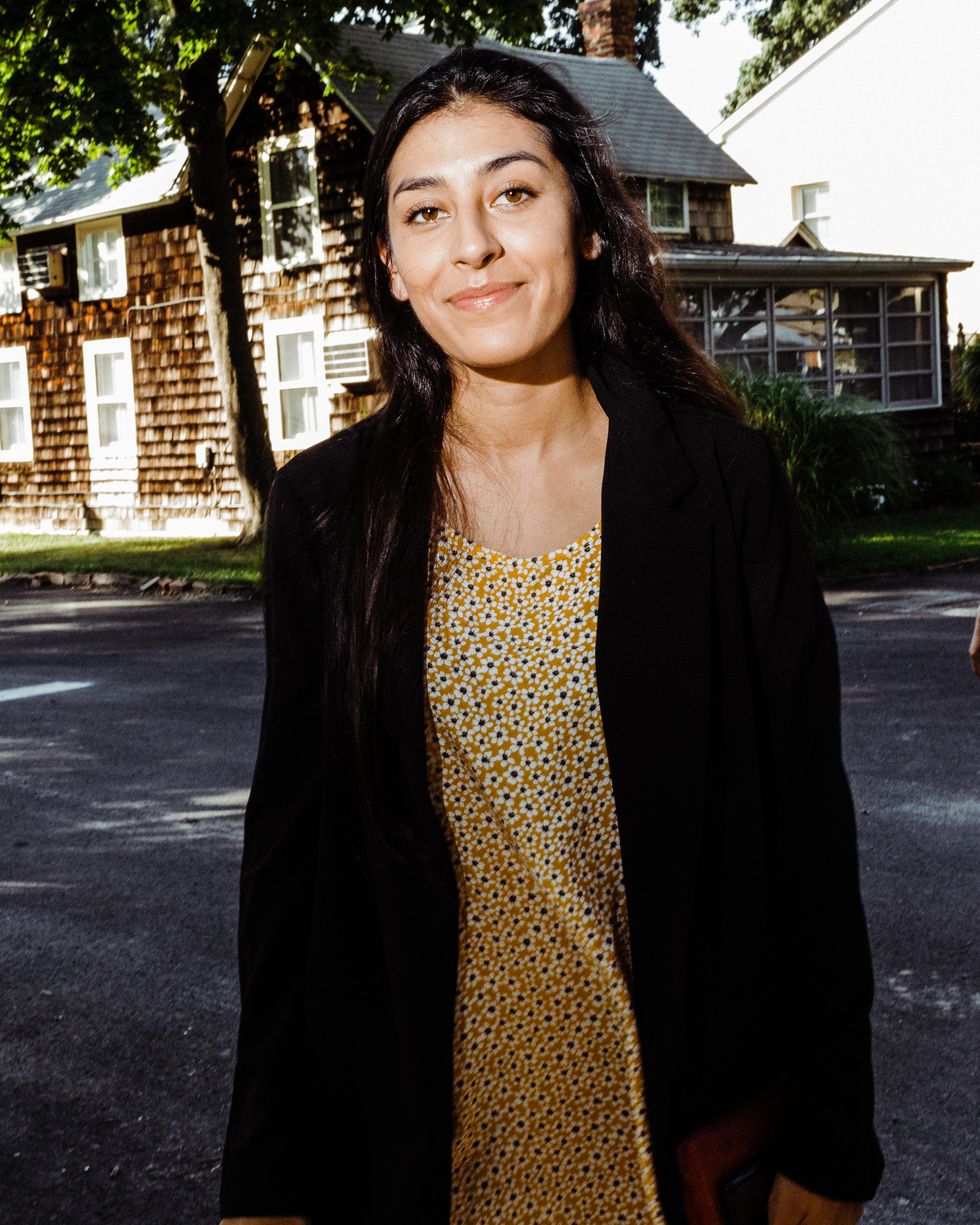 Photo: Courtesy of Alexandra Rojas
Photo: Courtesy of Alexandra RojasWhat is the mission of Justice Democrats?
“Our overall mission is to elect a new type of democratic majority in congress and across statewide races—one that will create a thriving economy and democracy that works for everybody. And if we are able to get leadership that is diverse in experience and background, we’re going to govern with the interest of all people, not of the rich and powerful. That, in our vision, is how we actually build a more just, equitable, and sustainable American economy and democracy. We felt that there was a need for a very focused organization, at least at the federal level, to support the efforts to recruit, staff, and empower these leaders who are actually running on policies that are going to benefit every American… [Justice Democrats] has this intersectional agenda that is unique in being able to actually support these candidates and not just say that we care about diversity. We’re actually putting them in the halls of power.”
What advice do you have for women who want to be more politically involved?
“Run for office, and get involved. Run campaigns, become a campaign manager, become a political director, take up space, and don’t just wait for things to change all that much, because that’s what we need to fight for. Run for office to show all of the other women, children, little girls, even women your own age, that they can do it. If we want to see the diversity of our country reflected in our leadership, not just in office but also among those running campaigns, we have to actually get involved.
“We’re [in this] movement moment where there are a lot of young women like myself, but also just women in general, that are super volunteers. They’re actually running for office, they’re making campaigns, and they’re not going to be alone in doing that. And organizations like Justice Democrats are supporting them.”
How does the question of equal representation in government extend beyond who we elect?
“We have a whole generation of new, diverse leadership and campaign workers, which is so important in advancing our fight for the policies that are going to most benefit our communities. We’re seeing that these amazing leaders can come out of this [election] cycle, which won’t just impact our legislation, it’s also going to impact the way that we run our campaigns and make them more community-focused. A lot of the work that I’ve done has been political, but it’s also been infield. I think, especially when we talk about how to run campaigns, specifically when organizing in your district or your state, it should be from a perspective that’s actually from the people of that state. And if not the people from that state, people that actually look like the populous that they’re talking to.”
“Our overall mission is to elect a new type of democratic majority in congress and across statewide races—one that will create a thriving economy and democracy that works for everybody. And if we are able to get leadership that is diverse in experience and background, we’re going to govern with the interest of all people, not of the rich and powerful. That, in our vision, is how we actually build a more just, equitable, and sustainable American economy and democracy. We felt that there was a need for a very focused organization, at least at the federal level, to support the efforts to recruit, staff, and empower these leaders who are actually running on policies that are going to benefit every American… [Justice Democrats] has this intersectional agenda that is unique in being able to actually support these candidates and not just say that we care about diversity. We’re actually putting them in the halls of power.”
What advice do you have for women who want to be more politically involved?
“Run for office, and get involved. Run campaigns, become a campaign manager, become a political director, take up space, and don’t just wait for things to change all that much, because that’s what we need to fight for. Run for office to show all of the other women, children, little girls, even women your own age, that they can do it. If we want to see the diversity of our country reflected in our leadership, not just in office but also among those running campaigns, we have to actually get involved.
“We’re [in this] movement moment where there are a lot of young women like myself, but also just women in general, that are super volunteers. They’re actually running for office, they’re making campaigns, and they’re not going to be alone in doing that. And organizations like Justice Democrats are supporting them.”
How does the question of equal representation in government extend beyond who we elect?
“We have a whole generation of new, diverse leadership and campaign workers, which is so important in advancing our fight for the policies that are going to most benefit our communities. We’re seeing that these amazing leaders can come out of this [election] cycle, which won’t just impact our legislation, it’s also going to impact the way that we run our campaigns and make them more community-focused. A lot of the work that I’ve done has been political, but it’s also been infield. I think, especially when we talk about how to run campaigns, specifically when organizing in your district or your state, it should be from a perspective that’s actually from the people of that state. And if not the people from that state, people that actually look like the populous that they’re talking to.”
Young Kim, Republican Candidate Running to Represent California’s 39th Congressional District
Young Kim’s family immigrated to the U.S. over four decades ago. She remembers going down to the beach with her mother to clean up cans and bottles, which her mother then recycled, using the funds towards building a local church for their immigrant community. Kim learned from an early age that she had a responsibility to give back, and eventually worked for her local congressman doing community outreach for over two decades. She also went on to serve in the California State Assembly before pursuing her current race for congressional office.
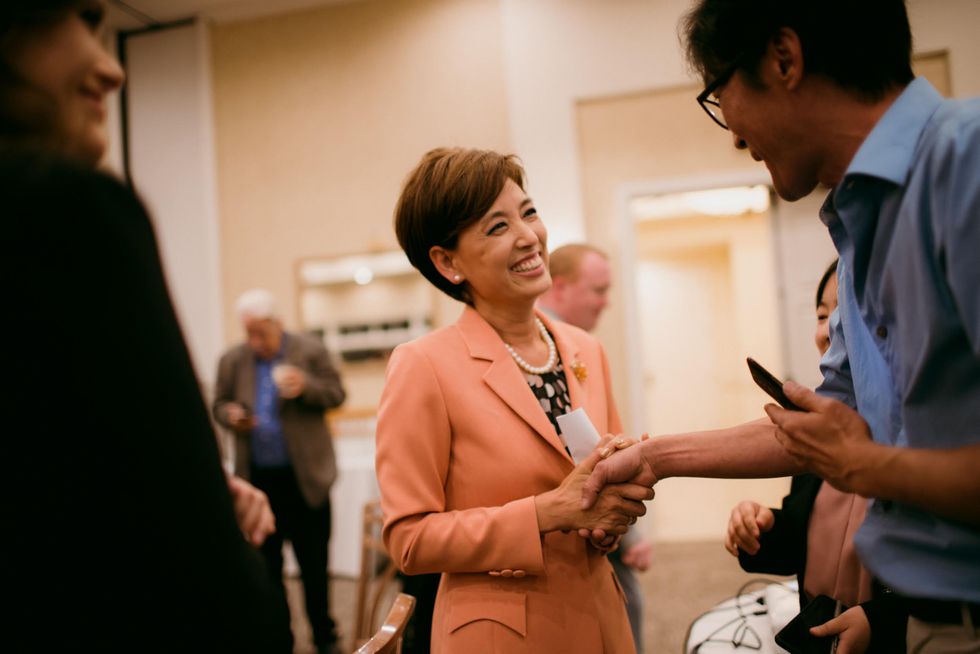 Photo: Courtesy of Young Kim
Photo: Courtesy of Young KimHow does being a Korean immigrant affect your approach to this race? Does this impact your platform and the kinds of issues you intend to tackle if elected?
“As an immigrant from South Korea, I possess unique perspective, appreciation for diversity, and cultural awareness. I have insight into the immigrant experience and the American Dream, that I was able to achieve because of the opportunities America gave me and my family. My experiences also allow me to relate to many people in the diverse district I am running to represent that are immigrants. As an immigrant that came here and had to fight to make it in this country, I know the importance of getting results. When elected, I want to work in a bipartisan way to move our country forward and get results for the people I will represent.”
What are the major issues preventing women from equal participation in society in the U.S.? How can the election of more female politicians push for change and systemic reform in these areas?
“I believe electing women from different viewpoints will allow for more diversity of thought and opinion that may change how we address certain issues. I am a tiger mom, and I get things done. I know there are many other women out there just like me that would be willing to come together, put partisan differences aside, and work towards consensus.”
The question of representation is front and center this election cycle: Several candidates would be the first woman, woman of color, or LGBTQ candidate elected to their particular seat. Why is representation of women, especially minority women, so important in politics?
“It is important to have people running for office that can relate with the communities they represent. The district I am running to serve is very diverse and reflects the patchwork of cultures and people that make up America. I can relate to that diversity through the experiences in my life, my deep roots in this community, and the work I have done here. I believe it is important to have that perspective. As elected officials, women can project positive images of hope, confidence, and unlimited potential to lead.”
“As an immigrant from South Korea, I possess unique perspective, appreciation for diversity, and cultural awareness. I have insight into the immigrant experience and the American Dream, that I was able to achieve because of the opportunities America gave me and my family. My experiences also allow me to relate to many people in the diverse district I am running to represent that are immigrants. As an immigrant that came here and had to fight to make it in this country, I know the importance of getting results. When elected, I want to work in a bipartisan way to move our country forward and get results for the people I will represent.”
What are the major issues preventing women from equal participation in society in the U.S.? How can the election of more female politicians push for change and systemic reform in these areas?
“I believe electing women from different viewpoints will allow for more diversity of thought and opinion that may change how we address certain issues. I am a tiger mom, and I get things done. I know there are many other women out there just like me that would be willing to come together, put partisan differences aside, and work towards consensus.”
The question of representation is front and center this election cycle: Several candidates would be the first woman, woman of color, or LGBTQ candidate elected to their particular seat. Why is representation of women, especially minority women, so important in politics?
“It is important to have people running for office that can relate with the communities they represent. The district I am running to serve is very diverse and reflects the patchwork of cultures and people that make up America. I can relate to that diversity through the experiences in my life, my deep roots in this community, and the work I have done here. I believe it is important to have that perspective. As elected officials, women can project positive images of hope, confidence, and unlimited potential to lead.”
Veronica Escobar, Democratic Nominee for Texas’s 16th Congressional District
Veronica Escobar first got started in politics in 1996, when a retired border patrol chief in her home city of El Paso was the first candidate to advocate for a wall (yes, that wall) between the U.S. and Mexico. Fueled by a passion for her work with immigrants and the undocumented community, Escobar immediately got involved as a campaign volunteer for a congressman whose values aligned with her own activism. She continued to volunteer until 2006, when she decided to run for local government. Escobar has since served as county commissioner and county judge, and is now the Democratic nominee for Texas’s 16th congressional district.
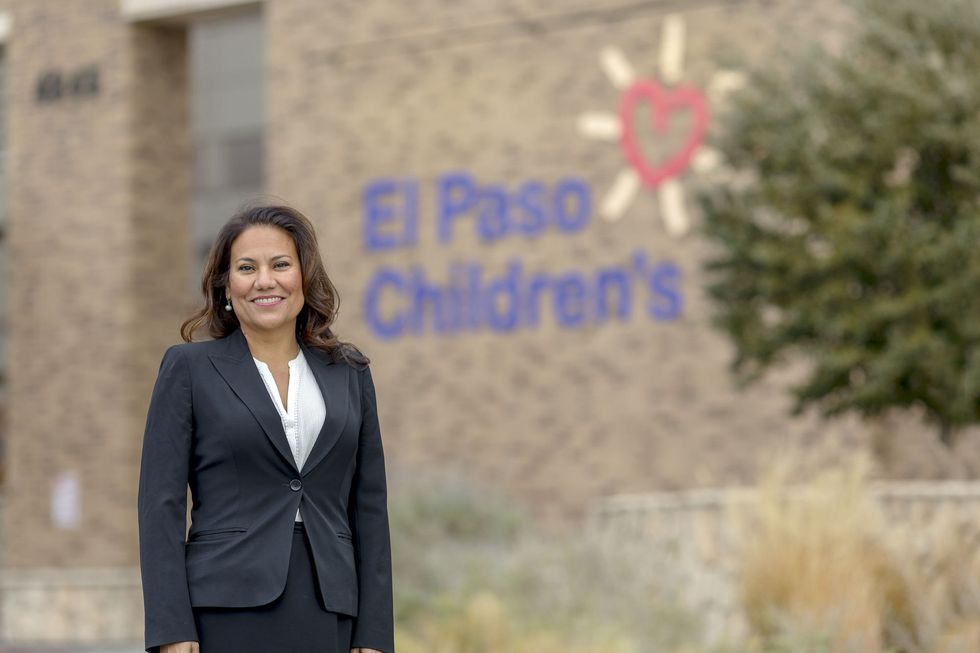 Photo: Courtesy of Veronica Escobar
Photo: Courtesy of Veronica EscobarIf elected, you will be the first Latina congresswoman in Texas. How does your background affect your approach to this race? Does this impact your platform and the kinds of issues you intend to tackle if elected?
“As county judge, one of my major priorities in the last decade has been healthcare. In local government, we worked hard to expand access to healthcare, we built clinics and a children’s hospital, and we worked hard to ensure a living wage for our employees, to fight corruption, and to create a more ethical and transparent government. Those were the things that I fought for and that I plan on fighting for as a member of congress, because that’s what I grew up with. I grew up with a sense of justice, where we question why we aren’t doing a better job by the most vulnerable, and why some people are shut out of a system that should work for everyone. I feel that it’s been my community values—and I live in a community that is 85 percent Hispanic—that are completely reflected in things that I have worked for and goals that I would have should I serve in congress.”
An unprecedented number of women are running for office in 2018. Why do you think this is?
“It was a year after the Anita Hill and Clarence Thomas hearings, where Anita Hill had to sit before a judiciary committee—much like [what recently happened]—and be humiliated by a group of men who seemed to not understand, or worse yet, not even really care about the harassment that she had to deal with. That’s when women came out and decided to run in record numbers. It’s just so ironic with [what happened] with the Brett Kavanaugh hearings and the way Republicans are treating a woman who has come forward to tell her story of sexual assault.
“So we see a record number of women running, in large part due to the atrocities of the Trump administration. It’s a direct reaction to an administration and to policies that are rooted in discrimination and cruelty. When you think about families being torn apart and children being put in cages, and the efforts to put limits on women’s reproductive rights, as well as efforts to erode voting rights, it’s clear as day that everything that the generations before us have worked for, it’s all at stake… The bad news is we see this surge of talented women at the lowest times in our history, when atrocities are happening. While I’m super excited about all these women running, it’s because things are so bad in our country now. But the good news is, women are stepping up. And I really do think it will be women who save this country.”
What advice do you have for women who want to be more politically involved—particularly mothers, like yourself?
“I would tell women that we’ve got to let go of our guilt because our children will be just fine. I lived with a lot of guilt for many many years because, as an elected official, there were neighborhood association meetings and Town Hall meetings at night, or I’d be block walking on weekends or dealing with the media on holidays… So I always felt very guilty about this as a mother. And I think this is something that a lot of working moms in general feel, but both of my kids are incredible human beings. They’re adults now… They are beautiful and compassionate, caring human beings who I think are going to help change the world. The fact that they saw their mom working so hard is a good thing. So I would tell women who have children: Take your children along with you to Town Hall meetings. Take them with you to knock on doors. I did as often as I could. And when you can’t be with them, don’t feel guilty. As long as there’s a good support system to help you, they will be fine. And you’re setting an incredible example through civic engagement.”
Want more stories like this?
8 Ways to Dismantle the Patriarchy
New Climate Report Predicts High Risk of Crisis by 2040
Will Affirmative Action as We know It Change Forever in Higher Education?
“As county judge, one of my major priorities in the last decade has been healthcare. In local government, we worked hard to expand access to healthcare, we built clinics and a children’s hospital, and we worked hard to ensure a living wage for our employees, to fight corruption, and to create a more ethical and transparent government. Those were the things that I fought for and that I plan on fighting for as a member of congress, because that’s what I grew up with. I grew up with a sense of justice, where we question why we aren’t doing a better job by the most vulnerable, and why some people are shut out of a system that should work for everyone. I feel that it’s been my community values—and I live in a community that is 85 percent Hispanic—that are completely reflected in things that I have worked for and goals that I would have should I serve in congress.”
An unprecedented number of women are running for office in 2018. Why do you think this is?
“It was a year after the Anita Hill and Clarence Thomas hearings, where Anita Hill had to sit before a judiciary committee—much like [what recently happened]—and be humiliated by a group of men who seemed to not understand, or worse yet, not even really care about the harassment that she had to deal with. That’s when women came out and decided to run in record numbers. It’s just so ironic with [what happened] with the Brett Kavanaugh hearings and the way Republicans are treating a woman who has come forward to tell her story of sexual assault.
“So we see a record number of women running, in large part due to the atrocities of the Trump administration. It’s a direct reaction to an administration and to policies that are rooted in discrimination and cruelty. When you think about families being torn apart and children being put in cages, and the efforts to put limits on women’s reproductive rights, as well as efforts to erode voting rights, it’s clear as day that everything that the generations before us have worked for, it’s all at stake… The bad news is we see this surge of talented women at the lowest times in our history, when atrocities are happening. While I’m super excited about all these women running, it’s because things are so bad in our country now. But the good news is, women are stepping up. And I really do think it will be women who save this country.”
What advice do you have for women who want to be more politically involved—particularly mothers, like yourself?
“I would tell women that we’ve got to let go of our guilt because our children will be just fine. I lived with a lot of guilt for many many years because, as an elected official, there were neighborhood association meetings and Town Hall meetings at night, or I’d be block walking on weekends or dealing with the media on holidays… So I always felt very guilty about this as a mother. And I think this is something that a lot of working moms in general feel, but both of my kids are incredible human beings. They’re adults now… They are beautiful and compassionate, caring human beings who I think are going to help change the world. The fact that they saw their mom working so hard is a good thing. So I would tell women who have children: Take your children along with you to Town Hall meetings. Take them with you to knock on doors. I did as often as I could. And when you can’t be with them, don’t feel guilty. As long as there’s a good support system to help you, they will be fine. And you’re setting an incredible example through civic engagement.”
Want more stories like this?
8 Ways to Dismantle the Patriarchy
New Climate Report Predicts High Risk of Crisis by 2040
Will Affirmative Action as We know It Change Forever in Higher Education?

